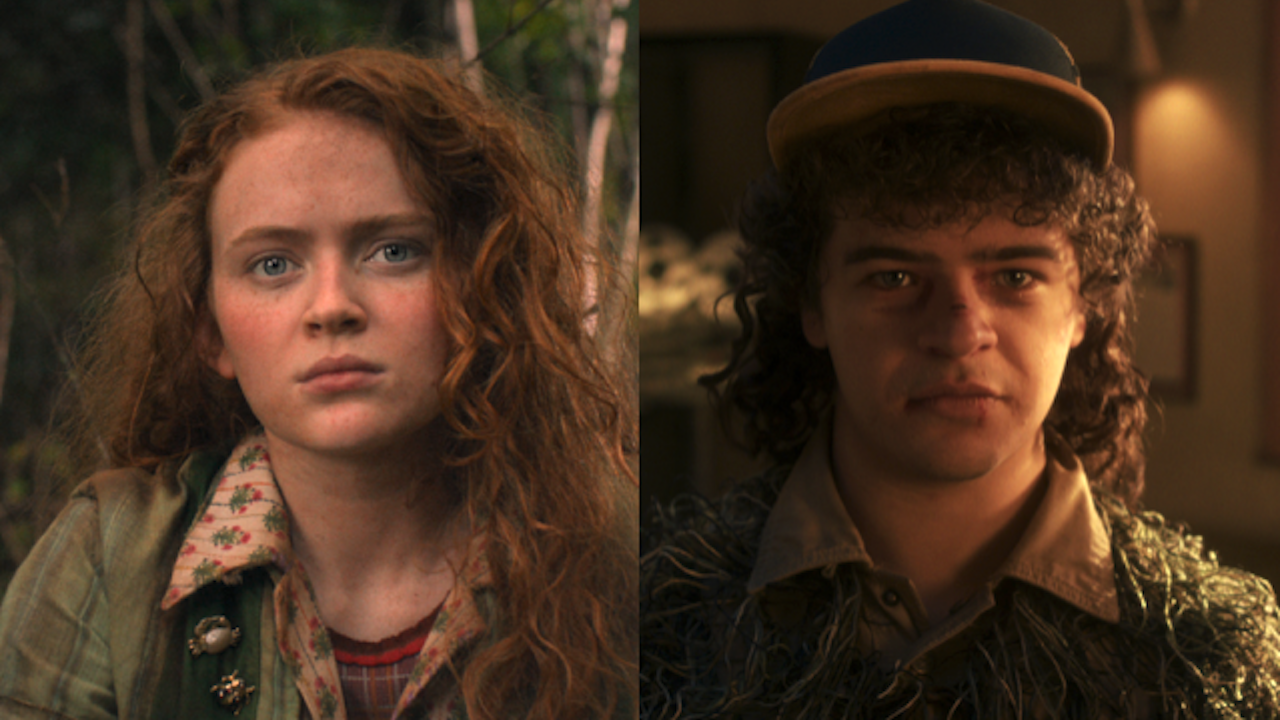The Story Behind Why Robin Williams Quit Playing The Genie After Disney's Aladdin, And Why He Eventually Returned
Robin Williams' Genie in Aladdin is one of the greatest voice performances ever, but it also set off one of the biggest battles in movie history.
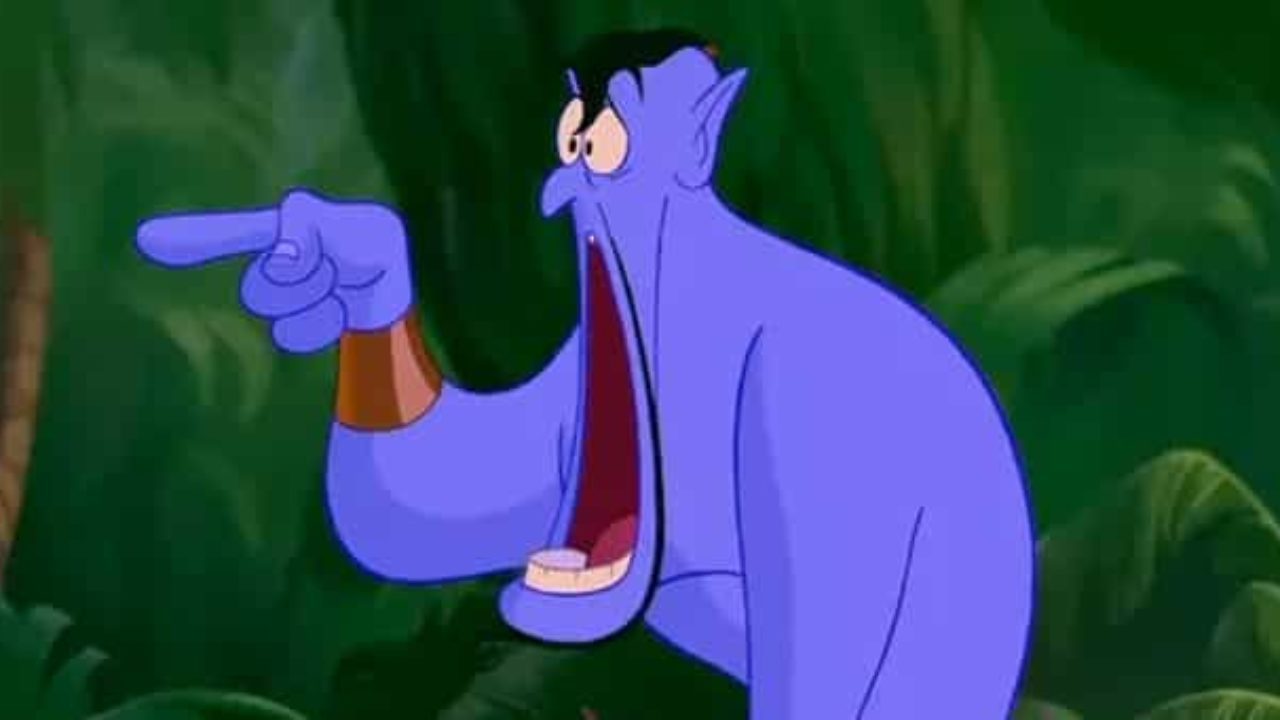
Disney's new Once Upon a Studio animated short is full of just about every conceivable Disney easter egg and reference you could imagine, but beyond a doubt, the biggest piece of news coming off the cartoon is that it sees Robin Williams voice Aladdin’s Genie again for the first time in more than 25 years. This was done by using unused audio from Williams's original turn as Genie, which needed permission from the Williams estate. Still, the fact that Disney got that permission is worthy of note because Williams's relationship with the company became strained almost as soon as he finished his work on the original movie.
Aladdin was such a hit that it spawned a franchise in its own right, with the original film being followed by a pair of direct-to-video sequels and an animated TV series. However, Williams only appeared in the final entry, Aladdin and the King of Thieves, because following the first movie, there was a major breakdown between him and the House of Mouse. So exactly what happened to cause him to leave, and why did he come back?
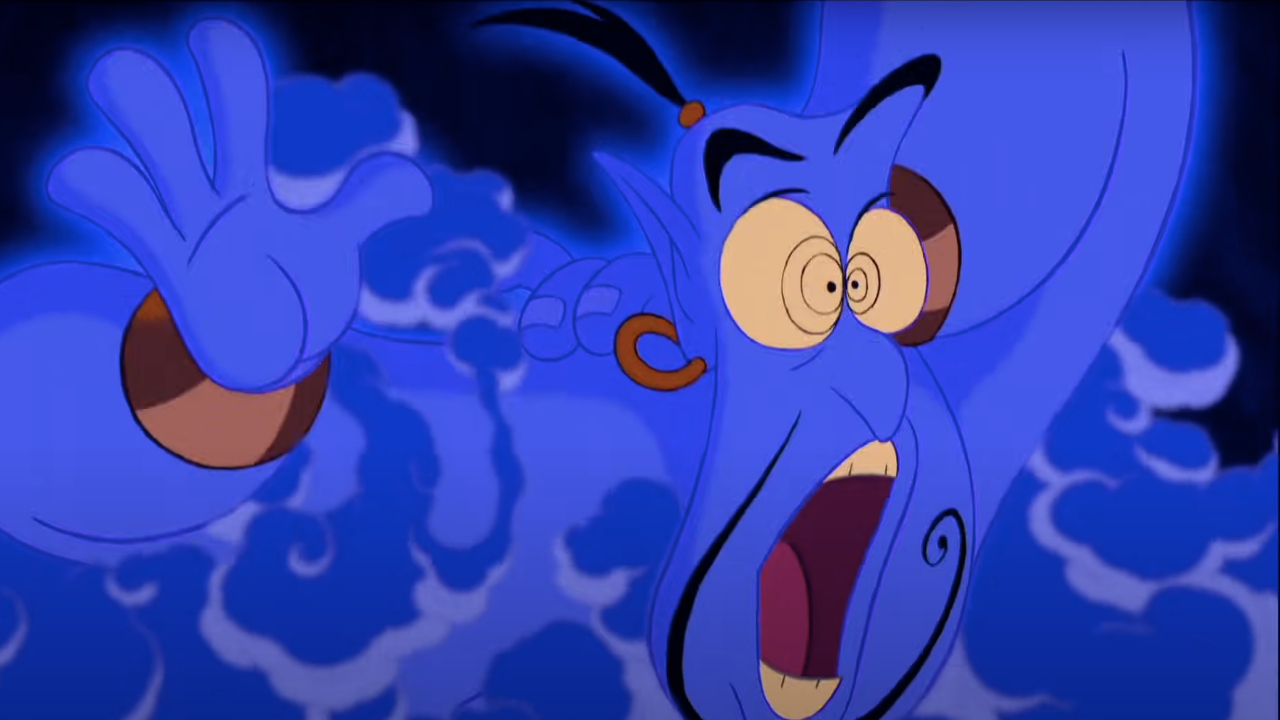
What Robin Williams Wanted In order To Voice The Genie In Aladdin
Robin Williams already had a strong relationship with The Walt DIsney Company prior to Aladdin. The studio had produced both Good Morning Vietnam and Dead Poets Society through its Touchstone label, and Willams had garnered his first Oscar nominations for the roles.
Robin Williams wasn’t the first celebrity name to voice a character in an animated movie, or even a Disney animated movie. Without question though, he was the biggest star to voice a major character in an animated film up to that point, and getting him on board was a big deal for the studio.
The Genie was designed based on Williams’ comedic style, and animator Eric Goldberg is the one given credit for convincing Williams to take the gig after having created a rough sample animation of the Genie set to some of Williams’ stand-up. Robin reportedly laughed so hard at the animation that he agreed to the role. Goldberg has said…
One of the great thrills of my life was watching Robin Williams laugh at my animation.
What’s more, Disney got Robin William at the SAG scale rate, the lowest amount of money the union would allow a voice actor to be paid for a role. However, in exchange for that, Williams had some requirements. He asked that he not be the major selling point of the film, requesting his name be used in 25% or less of marketing materials. He also asked that his voice not be used to sell merchandise. According to him, Disney agreed to these stipulations... until it didn't.
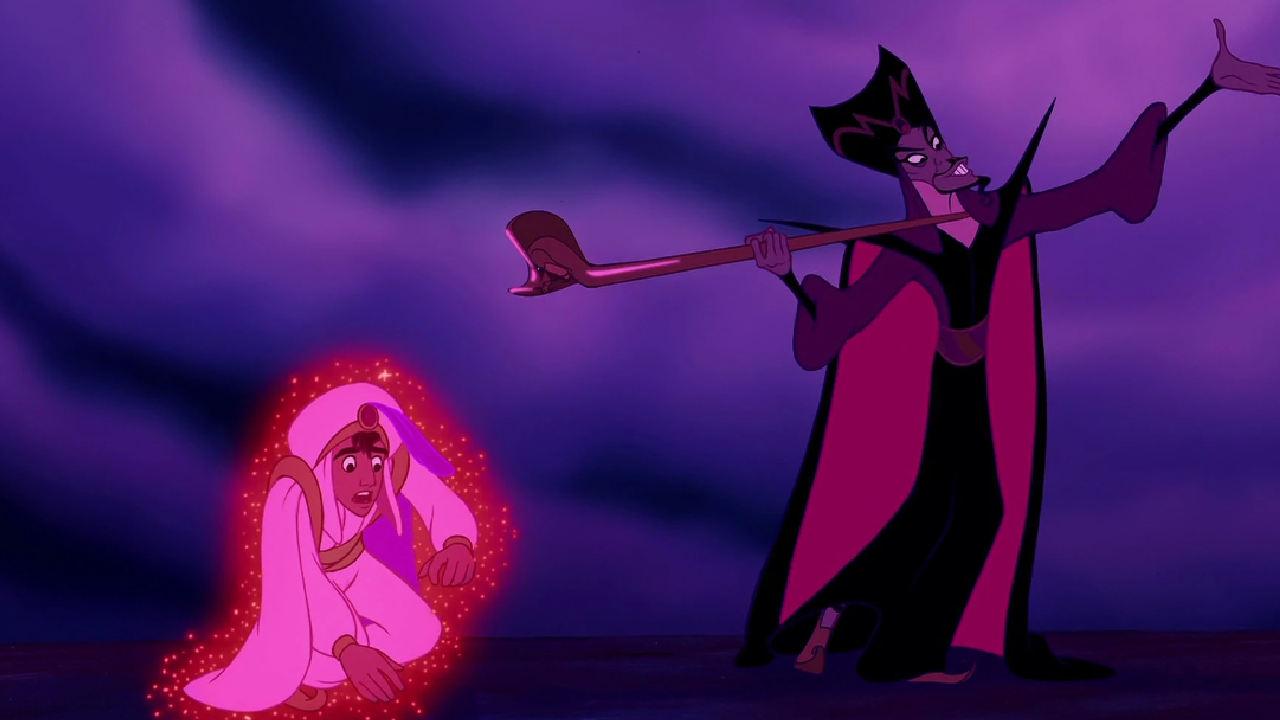
Disney Didn’t Live Up To Its End Of The Bargain
When it came to the marketing stipulation, Disney abided by the agreement, at least in the strictest sense. As long as Genie didn't take up more than 25% of a poster, he wasn't in more than 25% of the marketing, right? On the merchandising front, all bets were off fairly quickly. While Disney claims that the studio did abide by its agreement, and that Williams and his wife approved everything, Williams later told Today (via LA Times) that Disney had gone back on its word. He explained…
Your Daily Blend of Entertainment News
The one thing I said was I will do the voice. I’m doing it basically because I want to be part of this animation tradition. I want something for my children. One deal is, I just don’t want to sell anything--as in Burger King, as in toys, as in stuff.
Exactly why Disney wouldn’t follow Williams' wishes isn’t entirely clear, but a feud developed between Williams and Disney Studios chief Jeffrey Katzenberg. One of the big issues at hand was another animated feature Robin Williams was part of, Ferngully: The Last Rainforest. That film wouldn’t debut until after Aladdin, but Williams had signed on to voice the character Batty prior to Aladdin. Ferngully screenwriter Jim Cox told Vanity Fair…
Katzenberg did not want him voicing two animated characters in two animated movies at the same time, and tried to force Robin not to do it. Robin was steaming, like, ‘It’s my voice! You can’t stop me.’
Williams was furious at the attempt to get him to pull out of Ferngully. It's possible that this was a catalyst for Disney going back on its agreement regarding merchandising.
Battles like this often take place behind closed doors, but Willians started to bad-mouth Disney publicly. So needless to say that when The Return of Jafar, the direct-to-video sequel to Aladdin and one of the first sequels of any kind to a Walt Disney Animation Studios film, was produced, Williams was not interested in returning. Dan Castellaneta, the voice of Homer Simpson, was cast to replace Williams in the film, as well as the follow-up TV series.
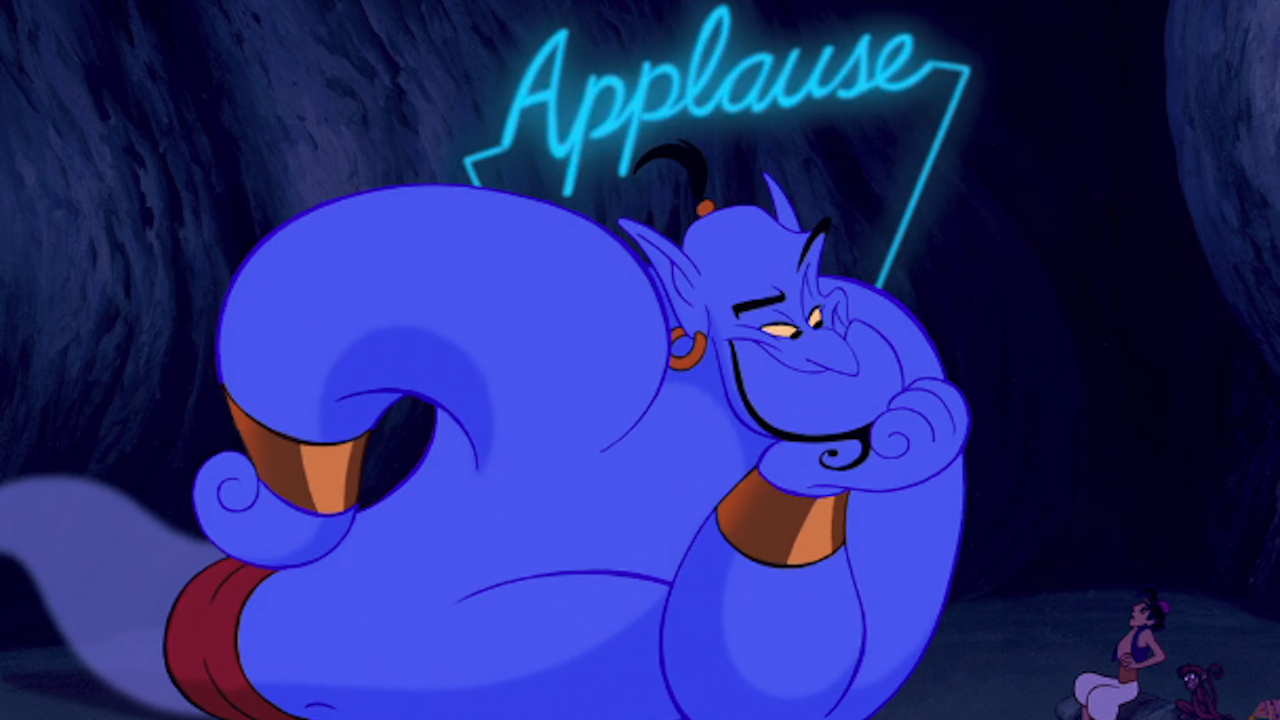
How Disney Smoothed Things Over And Got Robin Williams Back
In the end, all it took to bring Robin Williams back to Disney was an apology. Jeffrey Katzenberg, the studio head whom Robin blamed for going back on the original deal, was fired from his position in August 1994, and it was only a couple of months later that his replacement, Joe Roth, told the LA Times that Disney was at fault and apologized to Robin, saying…
Robin complained that we took advantage of his performance as the Genie in the film, exploiting him to promote some other businesses inside the company. We had a specific understanding with Robin that we wouldn’t do that. (Nevertheless) we did that. We apologize for it.
With that, Robin Williams returned and voiced Genie once again for Aladdin and the King of Thieves, as well as in a few animated PSAs for Disney. Williams was paid significantly more for the role this time around.
Now we have what will likely be the last Williams as Genie performance in the emotional Once Upon a Studio short. Had Disney’s ultimate apology not come, not only would we not have seen Williams return for those final projects, but it’s unlikely his family would have given their ok to use the original audio to bring the Genie back this time around.
Aladdin is one of the best Robin Williams movies and one of the best animated Disney movies. Without question, it's an absolute classic, and a lot of that is thanks to Robin Williams. He will be missed, so it's a good thing that his ultimate relationship with Disney gave fans this final chance to say goodbye.
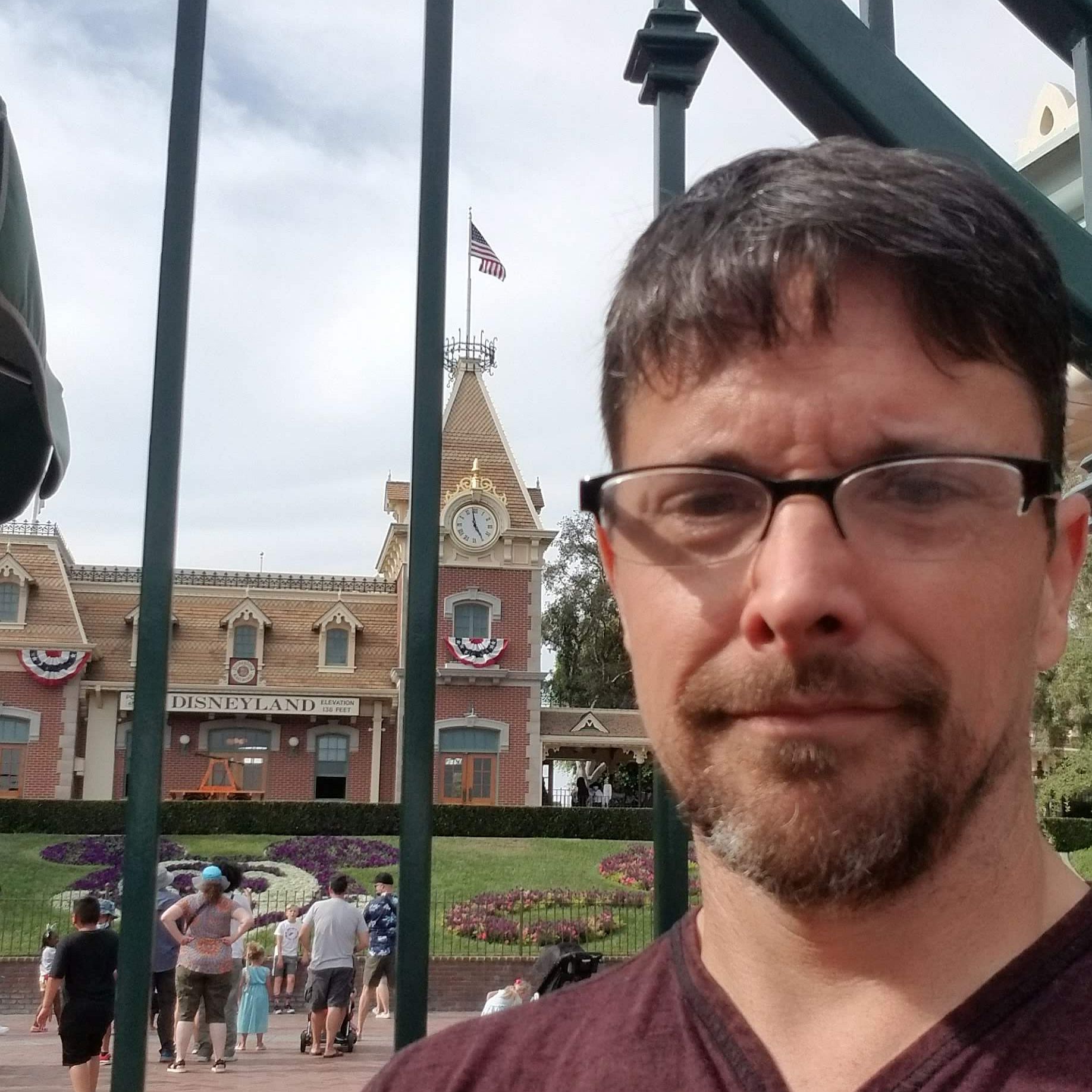
CinemaBlend’s resident theme park junkie and amateur Disney historian, Dirk began writing for CinemaBlend as a freelancer in 2015 before joining the site full-time in 2018. He has previously held positions as a Staff Writer and Games Editor, but has more recently transformed his true passion into his job as the head of the site's Theme Park section. He has previously done freelance work for various gaming and technology sites. Prior to starting his second career as a writer he worked for 12 years in sales for various companies within the consumer electronics industry. He has a degree in political science from the University of California, Davis. Is an armchair Imagineer, Epcot Stan, Future Club 33 Member.
